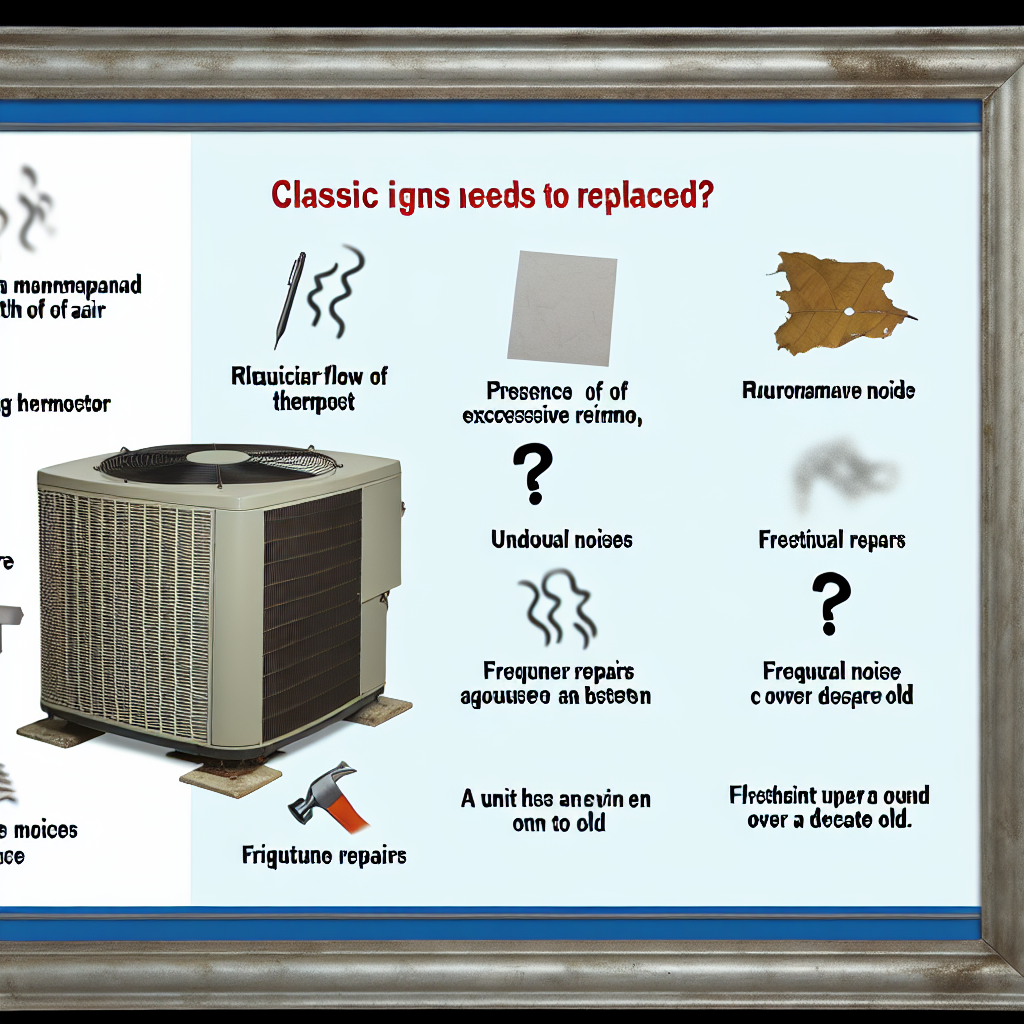Published: Feb 11, 2025

Heating, ventilation, and air conditioning (HVAC) systems are essential for maintaining a comfortable indoor environment throughout the year. However, like all mechanical systems, HVAC units have a limited lifespan. Understanding when it's time to replace your HVAC system is crucial to avoid unexpected breakdowns and ensure efficient heating and cooling in your home.
One of the primary indicators that it may be time to replace your HVAC system is its age. Most HVAC systems have a lifespan of 10-15 years. If your system is approaching or exceeds this age range, it's wise to start considering a replacement. Older units are not as energy-efficient as newer models, leading to higher utility bills and more frequent repairs.
Have you noticed a steady increase in your energy bills despite regular usage patterns? This could be a sign that your HVAC system is no longer operating efficiently. As systems age, their components wear out, reducing their overall efficiency. Investing in a new, energy-efficient HVAC system can lead to significant long-term savings on your energy bills.
If you find yourself calling a technician for HVAC repairs more frequently, it may be a clear sign that your system is nearing the end of its lifespan. Continuously repairing an old system can become costly, and at some point, it makes more financial sense to invest in a new unit. Newer systems come with warranties that can provide peace of mind and save you money on repairs.
Do you experience inconsistent temperatures throughout your home? Uneven heating or cooling can indicate that your HVAC system is struggling to maintain a consistent climate. This could be due to issues with the ductwork, inadequate insulation, or an aging system that can no longer distribute air effectively. Replacing your HVAC system can help ensure even temperature distribution and better indoor comfort.
Unusual noises or odors coming from your HVAC system should never be ignored. These could be signs of internal damage, malfunctioning components, or even mold growth within the system. If you notice rattling, grinding, hissing, or musty odors, it's important to have a professional inspect your system. In some cases, a replacement may be the best solution to address these issues effectively.
Your HVAC system plays a crucial role in maintaining indoor air quality. If you've noticed an increase in dust, allergens, or humidity levels in your home, your HVAC system could be to blame. Older systems may struggle to filter out contaminants and regulate humidity, compromising your indoor air quality. Upgrading to a new system with advanced filtration capabilities can improve the air you breathe and promote better health.
Are you constantly adjusting the thermostat but still feeling uncomfortable in your home? Your HVAC system should be able to maintain a consistent and comfortable indoor temperature. If you're experiencing hot and cold spots or overall discomfort, it may be time to replace your system. A new HVAC unit can provide better temperature control and enhanced comfort for you and your family.
Advances in HVAC technology have led to the development of more efficient and eco-friendly systems. If your current HVAC system lacks modern features such as programmable thermostats, zoning capabilities, or variable-speed compressors, you may be missing out on potential energy savings and improved comfort. Upgrading to a new system can not only enhance your home's efficiency but also add value to your property.
Knowing the signs that indicate it's time to replace your HVAC system can help you make informed decisions about your home comfort and energy efficiency. By keeping an eye out for these warning signals and consulting with a professional HVAC technician, you can determine the best course of action for replacing your old system with a more efficient and reliable one.
Remember, your HVAC system plays a vital role in maintaining a comfortable and healthy indoor environment for you and your family. Don't wait until your system breaks down completely—consider replacing it proactively to avoid sudden disruptions and enjoy the benefits of a modern, energy-efficient HVAC unit.

Our expert technicians are ready to assist you 24/7!
Contact Us Today!Read our latest articles for helpful information about heating, cooling, and air quality.
Debunking common HVAC myths is crucial for homeowners to make informed decisions about their heating and cooling system...
Read MoreRegular HVAC maintenance is crucial for homeowners to improve energy efficiency, extend equipment lifespan, enhance indo...
Read MoreInvesting in an energy-efficient heating system for your home can lead to significant cost savings on your utility bills...
Read MoreImproving indoor air quality is essential for maintaining a healthy home environment. By following these 10 tips, you c...
Read More